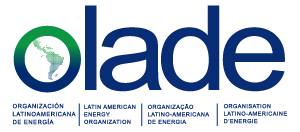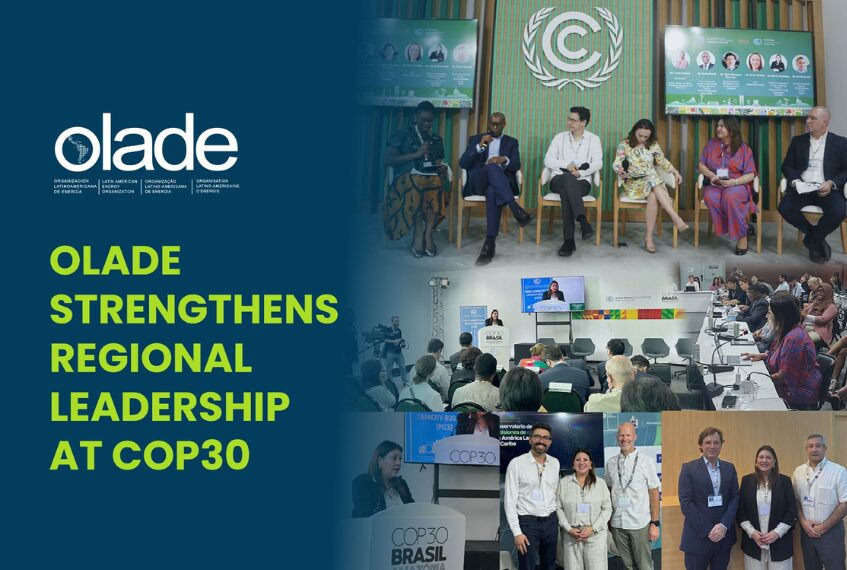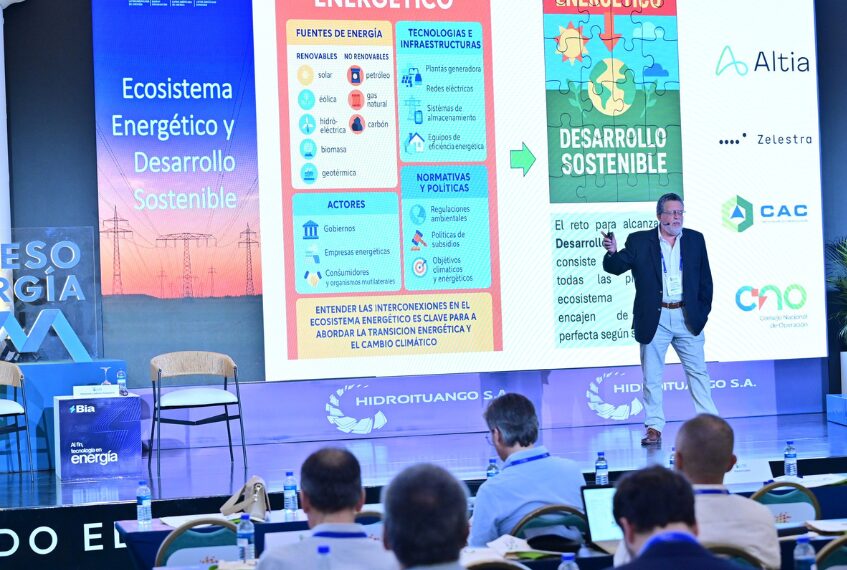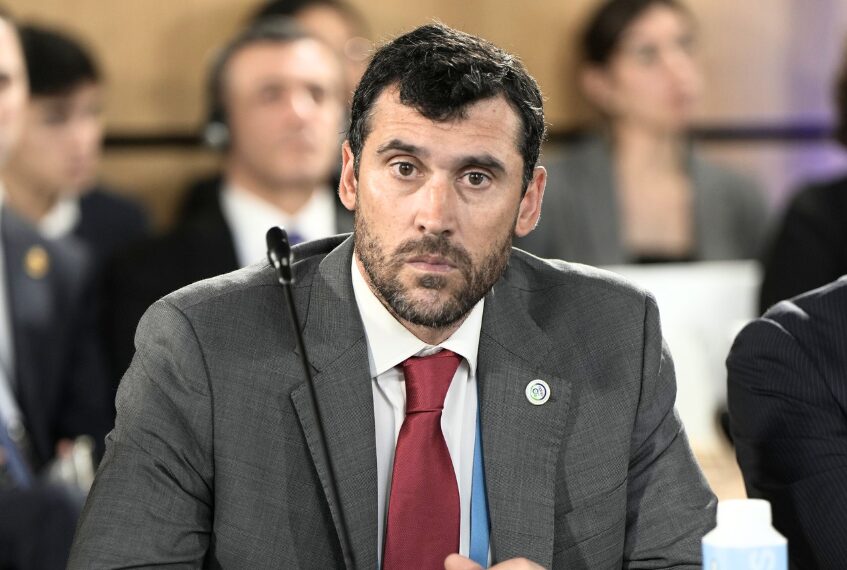The Latin American Energy Organization (OLADE) played a prominent role at COP30, a summit considered historic for Latin America and the Caribbean as it was held for the first time in the Brazilian Amazon and at a decisive moment for accelerating global climate action.
In this context, OLADE reinforced the strategic role of the region’s energy agenda, with the participation of Gloria Alvarenga, Director of Integration, Access and Energy Security, in multiple high-level forums. Throughout her agenda, Alvarenga represented OLADE’s 27 member countries before ministers, multilateral organizations, development finance institutions and global energy stakeholders, highlighting the relevance of the Latin American and Caribbean bloc as one of the world’s regions with the greatest renewable energy potential and a key actor in meeting international climate commitments.
At the event “Energy Interconnection: Promoting Global Emissions Reduction and Collaborative Development,” organized by GEIDCO together with Brazil’s Ministry of Mines and Energy, the UNFCCC and UNDP, Alvarenga advocated for regional energy interconnection as an essential tool to strengthen climate resilience and accelerate decarbonization. She emphasized that Latin America and the Caribbean have one of the cleanest power generation profiles on the planet and can become a central driver of the transition toward safer, more efficient and low-emission electricity systems. “Energy integration is fundamental to reducing emissions and fully harnessing our region’s renewable potential,” she stressed.
During the “EU-LAC High Level Dialogue on Energy Transition,” Alvarenga underlined that the partnership between the European Union and OLADE marks a shift “from intention to action,” recognizing Latin America and the Caribbean as a key region for the global energy transformation. She highlighted the regional electricity interconnection study led by OLADE with support from EUROCLIMA and GIZ, as well as the EU’s incorporation as an observer member of OLADE, as concrete examples of a structural cooperation aimed at building clean and inclusive value chains, where energy is understood as a global public good and a driver of development with social justice. For OLADE, this joint agenda with the EU reflects the recognition of the region as a strategic actor in the global energy transition.
In the forum “Strengthening Capacity Building for the Energy Transition,” Alvarenga stressed that capacity development is a determining factor for the region to consolidate its leadership in the global energy transition. She presented OLADE’s CAPEVLAC platform, which has trained more than 30,000 professionals across the 27 member countries, democratizing access to energy knowledge and strengthening regional planning. “Bridging technical skill gaps and strengthening institutions is essential to advancing a just and inclusive transition. Regional cooperation turns potential into concrete results,” she said.
In her participation at the high-level event “Novel Approaches to Transition Away from Fossil Fuels (TAFF), from ‘What’ to ‘How’,” Alvarenga emphasized that 20 OLADE member countries adopted in 2024 the Ministerial Declaration “No New Coal Plants in Latin America and the Caribbean,” an unprecedented regional commitment to accelerate coal phase-out while ensuring energy security. She cited Chile as an emblematic example, where coal generation fell from 40% to 15% in just four years, thanks to transparent market conditions and rapid renewable energy deployment. She stressed that the transition must be just and people-centered, which is why OLADE promotes the Ministerial Decision on Energy and Employment to support productive reconversion, strengthen skills, and protect the livelihoods of communities historically dependent on coal.
Alvarenga also spoke at the event “Building a Common Framework for Methane Emissions in Latin America and the Caribbean,” where she stressed that methane mitigation must be urgently integrated into the regional energy agenda. She stated that the transition does not imply an immediate abandonment of hydrocarbons but the transformation of their production through stricter standards, innovative technologies and transparent management. She highlighted the regional roadmap for low-emission natural gas standards and the creation of the Methane Community of Practice (COEMLAC) as examples of OLADE’s technical and political commitment.
In parallel, OLADE held a strategic meeting with Portugal’s National Energy Agency (ADENE) to advance the implementation of the Memorandum of Understanding signed earlier this year. Both entities agreed to strengthen cooperation in energy efficiency, capacity building and technical assistance to provide advanced tools and training programs to OLADE member countries.
Alvarenga also participated in an interview with CAF—Development Bank of Latin America and the Caribbean—where she emphasized that COP30 represents “a historic opportunity for the region to consolidate its climate and energy leadership, capitalizing on its clean energy matrix and renewable potential.” “The opportunity that Latin America and the Caribbean have at this COP is unique, and we must invest in our region—the greenest on the planet,” she said.
With its active participation in COP30, OLADE reaffirms its commitment to regional energy integration, energy security and the promotion of sustainable development based on cooperation. The organization continues to drive coordinated solutions that support the countries of Latin America and the Caribbean in meeting their climate goals and advancing a just, inclusive and long-term energy transition.




